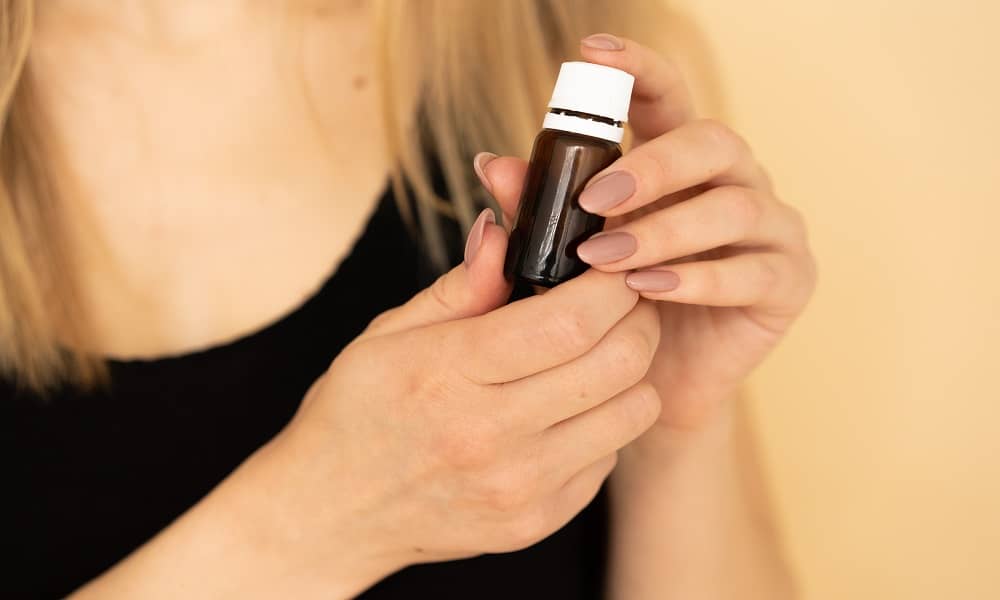


02 Mar When and How to Start Taking Collagen [All Questions Answered]
Collagen production declines with each passing year after 20!
A collagen supplement may save you from the tortures of aging and support healthy physical attributes. However, starting the supplementation on time is rather crucial for long-term effects.
Collagen intake isn’t just beneficial for healthy skin. Recent studies reveal higher efficiency in bone strength and overall health too.
The human body is composed of various proteins. Among them, collagen stands at a high position.
In fact, collagen makes up 30% of your body’s protein and 75% of your skin.
At a young age, specifically childhood, adolescence, and adulthood, the human body generates lots of collagen. Once you enter your 20s, the process gradually declines to lead to a scarcity of collagen.
Eventually, this results in different issues from signs of aging to weaker bones.
In short, various health problems await you as you grow older and collagen depletion takes roots.
Taking early measures may be helpful. But when should you start taking collagen?
This blog is an attempt to introduce you to the early nuances of collagen and its different aspects. So, let’s start with one of the most queried questions.
When Should You Start Taking Collagen?
Collagen production starts to slow down differently for different people.
If one is experiencing it in the early 20s, it doesn’t mean everyone has a similar experience.
However, if we take a rounded figure, the age is around 25.
Usually, when you cross this milestone, collagen production declines by 1% every year.
- In the starting phase, the effects of collagen production won’t result in visible change.
- With time, you would observe wrinkles, fine lines, crows’ feet, and other signs again.
- After 50, the collagen production lessens remarkably leading to visible signs of aging. Here, you would experience weak bones, muscle, and a lot of other issues.
So…
At What Age Should You Start Taking Collagen?


As the experts recommend, taking collagen as early as in your 20s can help slow down the decline in collagen production.
In short, it would to a certain extent marginalize the various negative impacts. Also, you need to understand it won’t completely stop the effects.
When Should a Woman Start Taking Collagen?
Well, whether you are a male or female, this is a general timeline applying to both genders.
Taking collagen in your 20s, in either case, is beneficial.
The positive effects are visible with positive efforts. By this I mean, only taking collagen isn’t the thing the researcher talks about.
Rather, their studies indicate a specific quantity of collagen is beneficial in a specific condition.
How Much Collagen to Take Daily: Different Quantity, Different Effects!!
As said earlier, 30% of the human body has collagen and 75% of collagen is present in the skin.
It has different impacts on different health issues. Thus, the requirement of collagen differs according to your concerned health benefit.
Collagen Dosage Per Day to Maintain Good Health
Studies suggest collagen dosages be anywhere between 2.5 to 15 grams per day as a safety measure.
Moreover, 9.5 grams per 1 scoop serving is the sweet spot for overall health.
Not only does it increase collagen production but also stimulates its numerous effects.
It increases skin elasticity, hair and nail health, wound healing, bone strength, and osteoarthritis.
Besides, it increases fullness like other proteins to help in weight loss.
How Much Collagen Should I Take for Hair Growth?



2.5 to 15 grams per day is safe as per current standards.
So, the quantity stated in the above section applies here as well.
It is one of the crucial proteins making up your whole body.
Whether it is your skin or other body parts, teeth, cartilages, muscle, ligaments, tendons, organs, and blood vessels, it is present everywhere.
How Much Collagen Do You Need for Skin?
The decline in protein begins once you have hit your mid-20s. Still, taking exogenous collagen can fight it off.
- A study suggests that a low collagen dosage of as much as 2.5 to 5 grams per day for 4 weeks helps in improving skin elasticity in older women.
Another study investigated the supplementation of specific collagen peptides.
Surprisingly, it has better results with a reduction in wrinkles in middle-aged women in comparison to placebo for 8 weeks.
How Much Collagen Should I Take for Joints?
Collagen production determines your bone health as well. When the decline begins, it may lead to various bone health issues, including osteoarthritis, rheumatoid arthritis, and others. Collagen intake may help in relieving the pain.
A study examined the effects of hydrolyzed collagen dosages.
- A small dosage of 8 to 12 grams helps in increasing plasma collagen levels and offers symptom relief.
On the contrary, some other studies show a greater dosage of 40 grams per day for 90 days is sufficient.
The research concluded improvement in joint flexion and extension in people with a history of arthritis.
Moreover, subjects reported a later onset of joint pain post 120 days of supplementation while performing exercises.
How Much Collagen to Take for Muscle Growth?
The protein constitutes your muscle mass as well. Hence, taking collagen supplements may help in improving body composition.
- For such effects, you should target taking 15 grams of the protein daily.
Two different research concluded positive outcomes in terms of 15g supplemental collagen protein for muscle building.
At the end of the study, participants examined showed a build-up in muscle, drop-in fat accumulation, and elevations.
These were the different collagen dosages applicable in different health conditions.
Now, you should have an idea of when you should start taking collagen supplements and how much of it you should take.
Moreover, getting started won’t be much of a hassle.
However, the question that pops up here in the first place is collagen any worth?
Do Collagen Supplements Work: Is Collagen Worth Taking?



Recent research and studies have backed the effectiveness of collagen production.
Hence, people are giving it adequate attention. But is it worth it?
Here’s a bit of explanation…
Basically, such products’ usage has increased to reverse the effects of the decline in collagen.
People take it to compensate for the gap between the current production and the required quantity.
In contrast, some natural supplements stimulate your natural body processes to provide a real-time difference.
Whereas, other groups consider it no more than any other protein.
The human body requires to break down the collagen protein into its component amino acids to utilize it.
Still, a sufficient number of studies indicate collagen supplement is beneficial.
Specifically, the research in anti-aging effects is quite promising. Women have experienced a significant reduction in wrinkles, fine lines, and other signs of aging.
Not to mention, collagen can also help in the fast recovery of skin after you go through a horrible episode of sunburn blisters.
Also, it has appealingly shown positive effects on hair health and nail. It isn’t just a beauty-related element.
In fact, it has a positive impact in terms of muscle gain, fat loss, and even bone health. This has given popularity to cohort athletic production with collagen as the primary ingredient.
Take Note:
As mentioned, collagen for 20 years old shows the best effect.
However, the constant queries are ‘can I take collagen at 18,’ ‘can I take collagen at 16’, and, ‘can a 16 year old take collagen?’
These questions have raised our concern. If you fall under this category, never do use such a supplement.
We’ve already mentioned the collagen decline begins in the mid-20s or even later.
At the young age of 16 or 18, the body processes work fine. Taking such a supplement might even lead to harsh effects. Beware!
Collagen supplement does work and helps in various conditions. However, for different conditions, you are likely to require different collagen forms and quantities.
How To Take Collagen – Different Forms You Can Choose From!
Taking collagen in your 20s embarks you on its long-term effects. The protein is available in different forms to provide you with various effects.
Here’s a shortlist of different options for collagen:
#1. Collagen Boosting Foods



The best way to get the most out of a collagen supplement is by taking it the naturalist way.
Well, I’m talking about the different collagen-boosting foods that you can add to your diet to make the most of it.
The human body, like any other proteins, creates collagen from different amino acids. These fundamental constituents come from different proteins present in your diet.
So, when your diet is full of different varieties of protein having amino acids for collagen production, you encounter positive effects.
Eating such food containing natural collagen may help ensure you have hydroxyproline for increasing collagen production…
Suggestions:
Beef, fish, chicken, dairy, and eggs.
#2. Multi-Purpose Collagen Supplement
It comes in various forms: undenatured collagen, gelatin, and hydrolyzed collagen.
Hydrolyzed collagen is best because it naturally breaks down into absorbable fragments called “peptides.”
In contrast, other proteins having long chains of peptides and amino acids are a bit difficult to digest. Whereas, the short chains are easily digested.
Hydrolyzed collagen is derived from porcine (pork), bovine (cow), or marine (fish) sources.
Collagen supplements contain the connective tissue of animals. So, there is no vegan substitute. However, these are naturally present in dairy, soy, and gluten-free foods.
The supplement is effective for different health benefits. From skin health to bone strength, it helps in other health conditions as well.
Thus, it is the preference of doctors as well as patients.
#3. Collagen Boosting Cream for Skin
75% of your skin is made up of collagen.
Thus, the decline in collagen greatly impacts your skin health leading to visible wrinkles, fine lines, and different signs of aging.
Although collagen supplement is helpful in improving the condition, the effects may be slow-building for your skin.
Thus, experts have developed a simple collagen-boosting cream for over-the-counter effects.
The best part is some collagen-boosting creams are vegan and constitute natural ingredients. Still, such products have non-vegan sources for constituents.
#4. Other Forms
Besides collagen-boosting supplements, foods, and creams, other forms are available. Although less popular, they have somewhat similar effects.
Collagen powder, drinks, and other forms are also useful. You know when you should start taking collagen but do consider what form suits you and your goal.
This will help you achieve the ultimate benefits of the protein.
When Is the Best Time to Take Collagen?



There isn’t any such perfect time to take collagen.
Instead, it should be a part of your daily routine. So, asking for the best time to take collagen for weight loss, skin health, and bone health is rather impractical.
Still, it may vary depending on what collagen source you choose.
- Collagen boosting food: You may take it as your breakfast or lunch or even dinner as per your preference.
- Collagen supplement: You may take it as per the guidelines present on its label. Moreover, the common standard is to take it with your breakfast or lunch with the number of pills prescribed by your medical specialist.
- Collagen boosting cream: Now, it again depends on the guidelines of the specific product. Usually, you should apply it in the morning after cleaning your face and at night before sleeping. You can apply it when you go out in the sun to prevent UV rays. No limit for application. You can reapply as per your requirement.
- Other forms: For drinks and powder form, you can have it with breakfast, post, or pre-workout for muscle building.
In any of the above cases, the crucial thing is to provide your body with sufficient doses of collagen.
Also, before taking it, have a clear-cut discussion with your medical professional to avoid harmful consequences. Now, let’s get to the juicy part.
How Long Does It Take for Collagen Supplements to Work?
The collagen supplement would take a different time to show you positive results. The conditions are:
- The current impact of collagen loss
- Your age
- Diet
- Different health conditions
- Other supplements intake
In short, the results differ from person to person.
Still, positive results are observable in every user, however long it may take for some.
- On average, the supplement shows you the difference in 3-6 months. You may begin to experience positive effects in the first 15 days.
- Eating collagen-boosting foods provides slower results.
- Whereas, applying collagen-boosting cream subjects you to a positive difference in signs of aging in as early as 2-3 months. The major difference appears in 6 months.
These are the estimated timelines applicable to observe the positive effects of collagen.
Do I Have to Take Collagen on an Empty Stomach?
There is no such way to get maximum effects of collagen-boosting creams as there is no perfect time to have it.
Some people are accustomed to having it on an empty stomach, whereas others have it after breakfast.
In this scenario, we suggest you have it according to the label on the specific collage supplement.
Or better, you may consult your medical service provider before taking a supplement.
Our discussion on ‘when should you start taking collagen’ ends here. Lastly, here are some ways to make the most of it.
Making the Most Out of a Collagen Supplement
Various studies have investigated collagen, its benefits, effects, and other aspects. Collagen decline is real and the cause behind various health issues from signs of aging to poor bone health.
It begins as early as you hit your mid-20s. Gradually, the decline gets bigger and bigger, reaching the ultimate level of having irreversible effects.
Further studies have examined if collagen supplements can slow down the outcome. It has shown positive results.
Thus, the right time to start taking collagen is the 20s. There are no restrictions on per-day timings, you can take it whenever you want.
It’s best to follow the manufacturer’s guidelines as mentioned on the pack.
A collagen supplement may provide positive results. The best way to maximize its effects is by doing extra.
Take care of your diet and add more collagen-boosting foods for quicker recovery and positive results.



No Comments